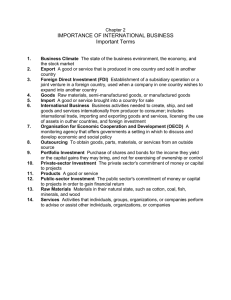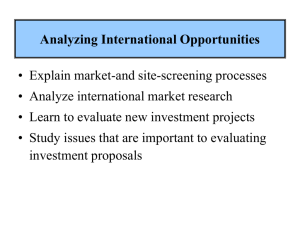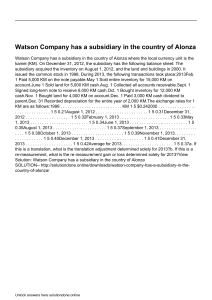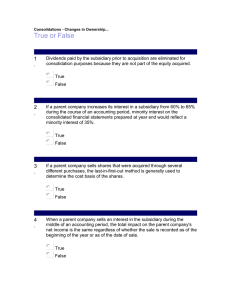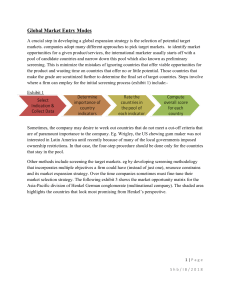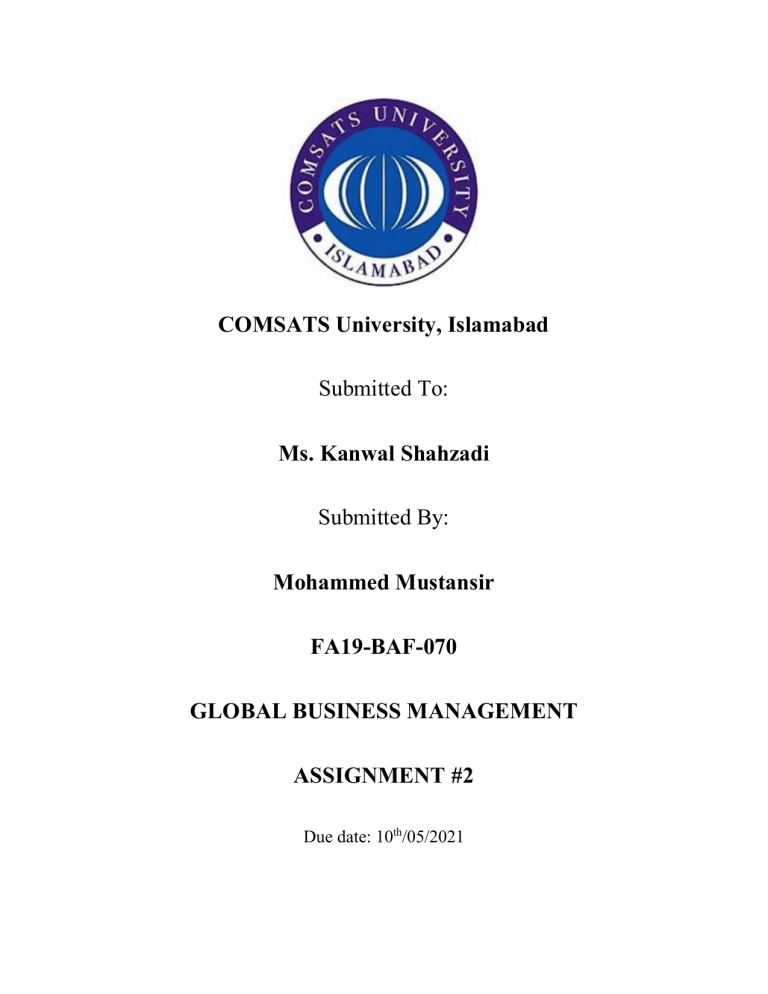
COMSATS University, Islamabad Submitted To: Ms. Kanwal Shahzadi Submitted By: Mohammed Mustansir FA19-BAF-070 GLOBAL BUSINESS MANAGEMENT ASSIGNMENT #2 Due date: 10th/05/2021 Q: 01: You are the international manager of a U.S. business that has just developed a revolutionary new personal computer that can perform the same functions as existing PCs but costs only half as much to manufacture. Several patents protect the unique design of this computer. Your CEO has asked you to formulate a recommendation for how to expand into Western Europe. Your options are (a) to export from the United States, (b) to license a European firm to manufacture and market the computer in Europe, or (c) to set up a wholly owned subsidiary in Europe. Evaluate the pros and cons of each alternative and suggest a course of action to your CEO. Ans: There are pros and cons of in all three options when considering to expand into Western Europe. First, let’s consider exports, this is approach has the least costs assuming there are no barriers to trade, the key aspects to consider would be exporting costs, transportation costs and localization. Trade Infrastructure in the Western Europe is relatively advanced and hence the transport costs are likely to be low for light and high value product like computers, however difficulties may be faced in localization. Since Power Requirements keyboards, and preferences in models can vary from country to county, therefore addressing the localization issue might be difficult. Licensing is another option, this option too has low costs and is quick way of entering the market and leaves the marketing and distribution to the other firm (licensee). As the Western Europe is technologically advanced so there would be many manufacturers and distributors in Europe. Hence the number of potential licensees will be great. However, in licensing the firm would have disclose its valuable technological information and due to this the firm might lose its competitive advantage in case that the licensee uses or disseminates the information improperly. The Third option is setting up a wholly owned subsidiary (FDI), this approach although will be the most costly and time consuming. However, setting up a subsidiary will guarantee that the firm’s proprietary knowledge will be protected and localization can be done effectively. FDI will also place the firm in the market and allow it to be in direct contact with its customers engage them. Given the constantly evolving nature of this industry FDI would allow the firm to cater to the specific needs of the customers. In order to determine which course of action would be best for the business there are various aspects to be considered. I would recommend opting for a wholly owned subsidiary because it saves on shipping costs. Wholly owning the subsidiary allows complete control and if it fails the company can abort the firms operation. The firm would enjoy uninterrupted business, which incase of a licensing can arise due to any dispute among the parties. However, a potential downside to this approach is if the innovation is not the core of the product and can be easily copied, in that case, then licensing would allow the firm to get the quickest large scale entry into Western Europe and reap as much profit as it can before losing its advantage.
